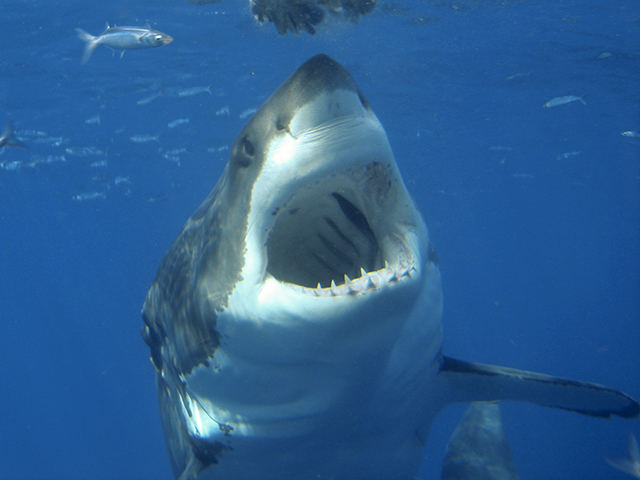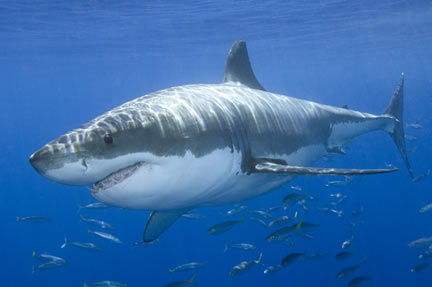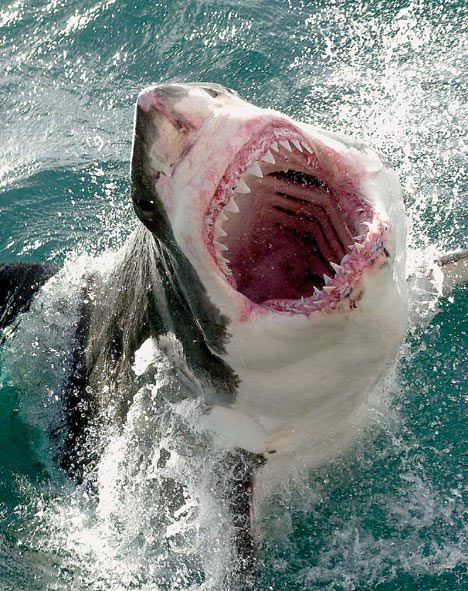Eco Green Facts



 Great White Sharks – To Cull or Not to Cull
Great White Sharks – To Cull or Not to Cull
Diving with sharks is now a popular pastime as tourists and scuba divers face their fears to take the plunge with some of the most feared animals on earth. The Great White Shark is not only the most feared ultimate predator, it is also an awe inspiring experience for those who have encountered this magnificent animal up close and personal.
The Great White Shark is once again in the news as three people have been attacked and killed off the beaches of Perth in Western Australia in the past month. Each of the families of the persons taken by the sharks has expressed the opinion that although they have lost their loved one, they also believe that the victims would not want the animal killed. As with most people swimming off the coast of Western Australia, though you hope it won’t happen to you, it is always in the back of your mind that there could be sharks around. Not all beaches have shark patrols.
 The West Australian State Government has now issued a “kill order” and is looking at the possibility of culling shark numbers.
 The problem most people can see is if they do catch a Great White Shark, will it be the animal that killed one or more of the victims or will it be a shark that just happens to be in the wrong place at the wrong time!
 From a young age we were taught not to swim alone, not to swim at dusk or dawn as this is feeding time for the animals and do not swim near any seal colonies.
 Sad as it is when a person is killed by a shark, we also have to respect the fact that we are swimming in the shark’s environment, we should take precautions and not swim or dive alone.
To overcome people’s fear or for that extra special adrenalin rush, more and more people all over the world are diving with sharks. It might sound crazy, but it is a phenomenon that is becoming increasingly popular as tourists and scuba divers face their fears to take the plunge with some of the most feared animals on earth. Whether it is from the safety of a cage or in the open water, shark diving is becoming a huge draw card for shark infested waters like South Africa, Australia, The Gulf of Mexico and California.
South Africa is leading the way in shark diving eco tourism. South Africa is probably the best place for seeing the so called “man eater”, the Great White Shark. The Great White is the most feared predator on earth. Fears fuelled by movies like “Jaws” and “Deep Blue Ocean”. There are literally hundreds of places in South Africa where you can go shark diving and just as many operators willing to take you there. From the safety of a solid steel cage, you can view Great White Sharks of up to 6m in length.
The dive operators take you to spots between two and fifteen kilometres offshore and throw dead fish and blood on the water to lure in any sharks in the area. Some sharks can smell a drop of blood up to two kilometres away. Once the sharks are in sight the cage is dropped and some fake seal lures are hung over the boat to attract the sharks even closer. You can expect to spend between twenty and forty minutes in the cage. Sharks are often curious about the cage, so close encounters are not uncommon.
If diving with sharks from the safety of a cage is not extreme enough for you, then there are plenty of places where you can dive in the open water with different species of shark. Most sharks will not attack humans unless they feel threatened or they think they’re prey. This makes scuba diving with sharks relatively safe.
Some of the best areas you can dive in the open water with sharks are in The Caribbean, Great Barrier Reef off the coast of Queensland, Cocos islands, Mexico, The Maldives and The Bahamas. There are literally dozens of species of shark on offer. What sharks you’re likely to see depends on what time of the year you go.
One experience that will literally take your breath away is diving with a Whale Shark. The Whale Shark is the biggest fish in the world, measuring up to 46+ feet! Scared? You shouldn’t be the Whale shark is an herbivore! The biggest shark in the world doesn’t eat meat. In fact, the Whale shark is the most docile of all sharks and doesn’t mind a bit of human interaction. Sharing space with this enormous fish truly is a life changing experience. Whale sharks are found anywhere in the warm waters near the equator, but they are hard to find and you often need to travel quite a distance offshore.
Exmouth in Western Australia is a popular place to experience swimming with Whale Sharks. It seems the Whale Sharks like the warmer waters to the north of Australia and the Great White Sharks like the colder waters to the south of Australia.
You might question what “Great White Sharks” have to do with our environment. Great White Sharks are at the top of the food chain and if they were culled, remembering that they are a protected species, it could have dire consequences and alter the natural balance of our oceans. We need to protect all our marine life to ensure that the natural balance is maintained. 
We have to find ways of living with these creatures that is safe for us without resorting to culling. A suggestion has been to install shark fences around our swimming beaches. Many beaches in Western Australia in the early 20th Century had shark fences but these were never replaced as they deteriorated. Another idea is the catch and release system. Perhaps catching the sharks and then releasing them in uninhabited areas may be a solution. What must not happen is the blatant slaughter of these magnificent animals as this could lead to an environmental disaster for our oceans.
The great white shark, scientific name Carcharodon carcharias, also known as the great white, white pointer, white shark, or white death, is a large lamniform shark found in coastal surface waters in all major oceans. The great white shark is known for its size, with the largest individuals known to have approached or exceeded 6 metres (20Â ft) in length, and 2,268 kilograms (5,000Â lb) in weight. This shark reaches maturity at around 15 years of age and can have a life span of over 30 years.
The great white shark is arguably the world’s largest known extant macropredatory fish and is one of the primary predators of marine mammals. It is also known to prey upon a variety of other marine animals including fish, pinnipeds, and seabirds. It is the only known surviving species of its genus, Carcharodon, and is ranked first in a list of number of recorded attacks on humans. (REF. Wikipedia.org)



